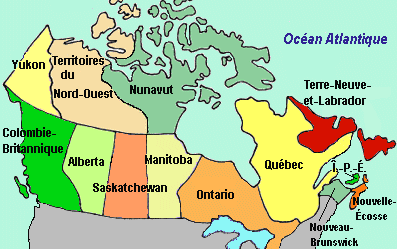Debate Over Payday Loan Regulations Continues to Heat Up North of the Border
By Desmond CarlislePayday Loan Writer
Providers of payday loans insist that they provide a needed service. But Chris Robinson, Professor of Finance at York University, begs to differ.
In a study for the Association of Community Organizations for Reform Now (ACORN), he proposes a cap that could save Canadians approximately $194M annually, or about 57 percent of his estimate of recent industry revenues. Robinson predicts his proposed rate structure would drive many payday loan lenders out of existence, according to the Toronto Star.
"Their scale will be too small to survive on the lower fees," he said.Only one or two large chains would survive, Robinson predicts, although they could expand and become more profitable as a result.
Meanwhile, a cap on fees approved by the Canadian government might then encourage banks and credit unions to offer small, short-term loans in competition with payday cash advance firms. Robinson thinks that could lead to further rate reductions.
Mainstream financial institutions offer more services than payday lenders, so Robinson predicts that by entering the short-term loan field, the big traditionals would be in a position to undercut the big payday advance loan agencies, such as National Money Mart Co. and The Cash Store.
"Without properly designed regulation, they will not enter the market, and hence borrowers will always face exceptionally high fees," Robinson said.
The Criminal Code of Canada sets an APR cap of 60 percent, or 90 cents to borrow $100 for a week. But payday loan companies charge interest and fees totalling as much as $13 or $35 per $100. Federal and provincial financial regulators have been studying and debating how to best control the fast-growing payday loan business for years.
Manitoba police have charged one payday lender criminally, while various former clients are seeking certification for class-action lawsuits. Other provinces, along with Manitoba, want to legislate fee limits once Ottawa provides lenders of payday advances an exemption under the Criminal Code, as was done earlier for tax-rebate discounters.
But Ontario seems to be holding out for federal legislation. Ottawa limits tax-rebate discounters to $15 per $100 for the first $300, and for larger loans $50 on the first $300 and 10 percent of the rest. Robinson proposes two alternative fee structures for payday loans:
- Option 1: Would limit total charges on a $100 loan to $15.91 for one week, or $18.67 for four weeks.
- Option 2: Would limit charges to $12 for up to 31 days.
Larger payday loans would have a lower cost per $100. But Robinson proposes loans be limited to the lesser of $1,500, or 25 percent of the borrower's net pay, with no more than 31 days to repay.
He describes his two options this way:
- Option 1: A fixed fee of $10 per loan, plus an effective APR no higher than 60 percent, plus a fee equal to 5 percent of the loan.
- Option 2: A fee of 12 percent of the first $250, plus 6 percent of the loan principal in excess of $250.
Current and former presidents of the Canadian Payday Loan Association say they welcome ACORN's call for regulation, but they don't endorse Robinson's proposed fee cap. Michael Thompson, the current president, says a fee cap should be set high enough to allow any company offering bad credit payday loans to operate at a profit, then leave it up to consumers to shop.
"We don't think he should try to manipulate the marketplace," he said.
Former association president Robert Whitelaw says that Robinson should be applauded for at least putting some numbers on the table — but the data should be up for discussion. He notes one of Robinson's rate formulas is not as high as is permitted in some U.S. states.
Washington State, for example, allows $15 per $100 on loans up to $500, and 10 percent beyond that. The maximum loan is $750, for up to 45 days.
The majority of consumers who use payday loans have checking accounts with a bank or credit union, and access to other forms of credit. Yet, most of them express satisfaction with the payday lenders they have dealt with. It's unknown whether payday loan users don't want their main financial institutions to know cash is so tight that no faxing payday loan services are needed.


